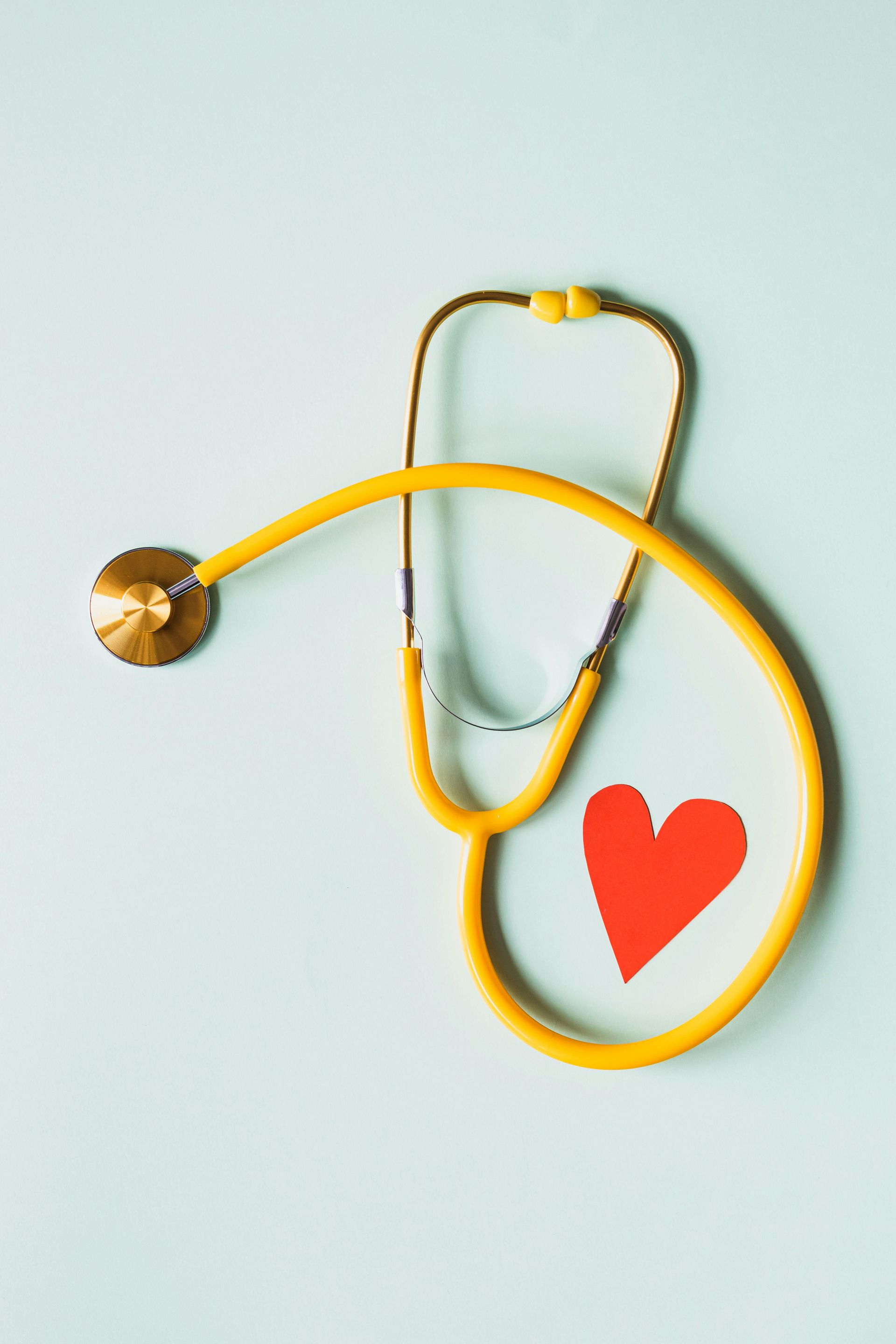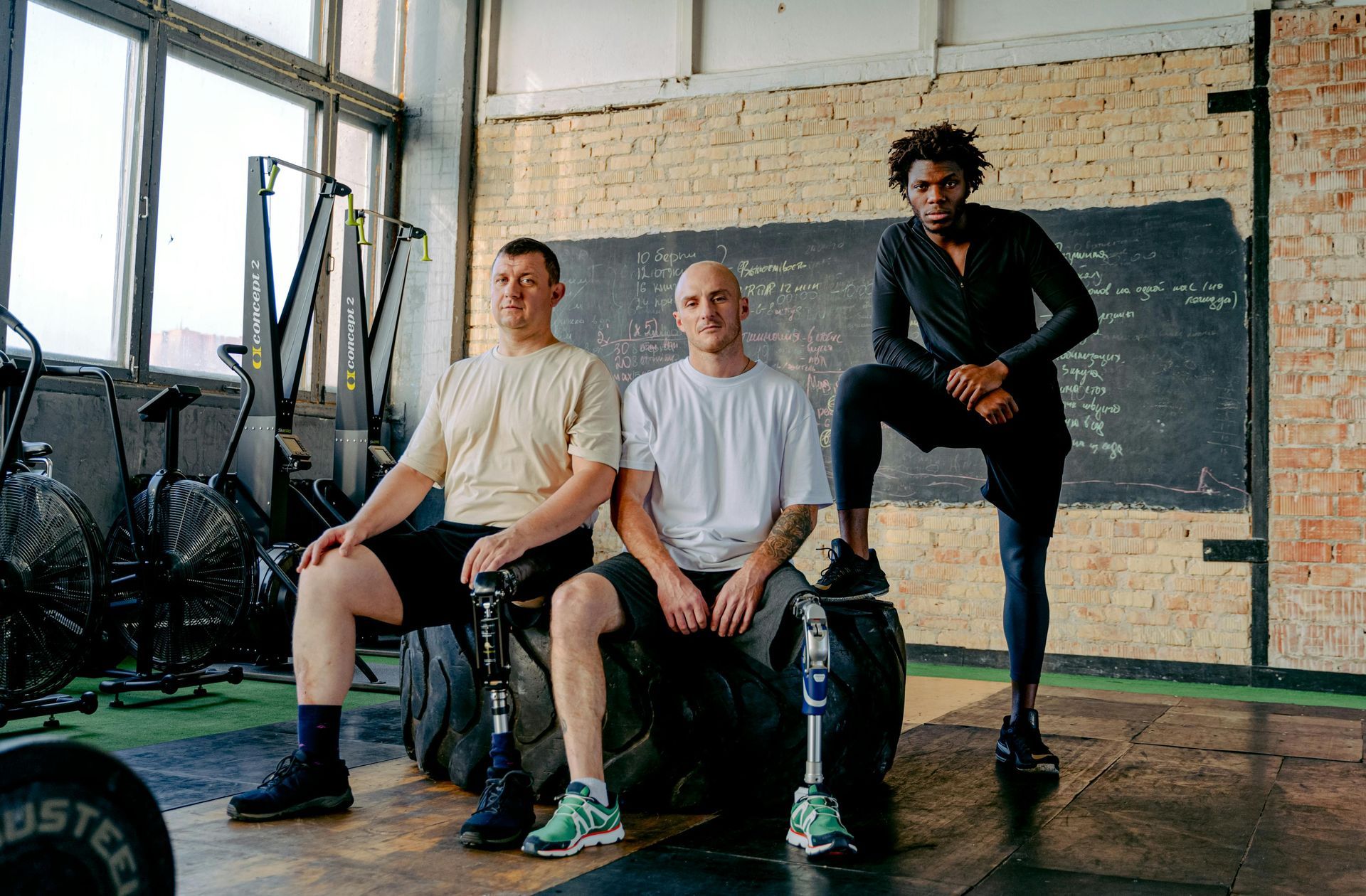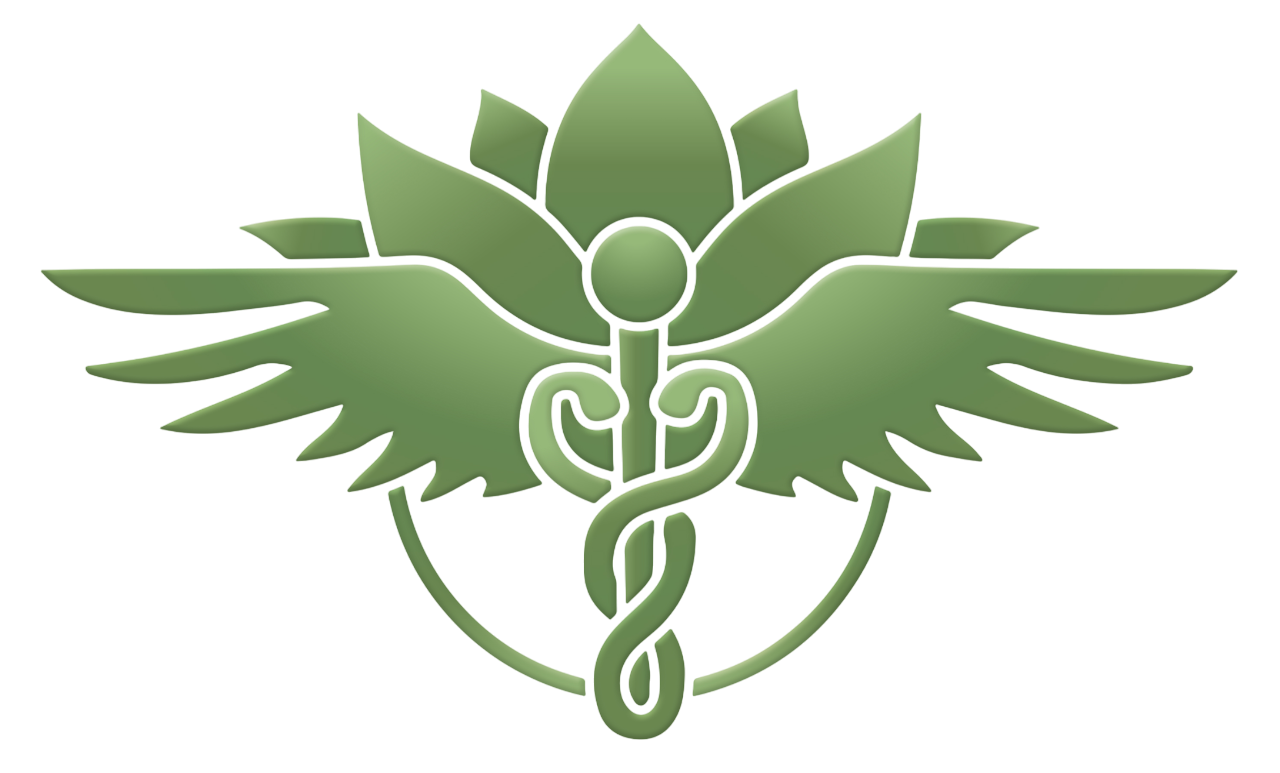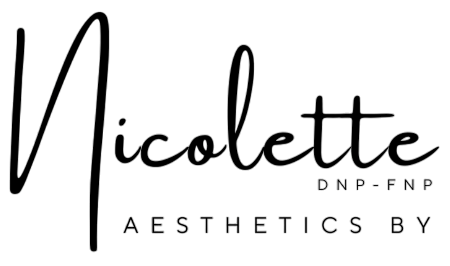Wellness & Hormones Avenue
Wellness & Hormones Avenue Blog
Browse all Post

February is Heart Health Month, and while we're all thinking about matters of the heart, let's talk about what's actually keeping your heart healthy: your hormones! Your heart doesn't beat in a vacuum. It's deeply connected to your endocrine system—the network of glands that produce hormones regulating everything from blood pressure to cholesterol to inflammation. When your hormones are out of balance, your heart pays the price (then it trickles to your kidneys, and so forth). The good news? You have more control than you think. The Hormone-Heart Health Connection Estrogen, progesterone, testosterone, cortisol, thyroid hormones—they all play critical roles in cardiovascular health. Estrogen & Heart Health Estrogen is cardioprotective. It helps keep blood vessels flexible, reduces inflammation, and supports healthy cholesterol levels. This is why women's heart disease risk increases after menopause when estrogen drops. Perimenopause and menopause aren't just about hot flashes—they're a critical window for cardiovascular intervention. Testosterone & Men's Health Testosterone supports healthy blood pressure, cholesterol metabolism, and vascular function. Low testosterone is linked to increased cardiovascular risk in men. Optimizing testosterone through proper monitoring and replacement (when indicated) can be heart-protective. Cortisol & Chronic Stress Chronic stress keeps cortisol elevated, which increases blood pressure, promotes inflammation, and damages blood vessel walls. Your nervous system and your heart are intimately connected. Thyroid Hormones An underactive thyroid (hypothyroidism) increases cholesterol and cardiovascular risk. An overactive thyroid (hyperthyroidism) can cause irregular heartbeats. Thyroid optimization matters for heart health. Why Preventative Care Matters Most people don't know they have heart disease until they have a heart attack. That's not prevention—that's crisis management. True preventative care means understanding your baseline and catching problems early, before symptoms appear. This is where advanced diagnostics come in. Advanced Diagnostics: See What Standard Tests Miss Standard bloodwork (basic cholesterol panel) tells you part of the story. Advanced diagnostics tell you the whole story: Advanced lipid panels (particle size, LDL particle count, Lp(a)) – Standard cholesterol numbers can be misleading. You need to know if you have small, dense LDL particles (more dangerous) or large, fluffy ones. Inflammatory markers (hsCRP, homocysteine) – Inflammation is a major driver of heart disease. These markers reveal your true cardiovascular risk. Hormone panels (estrogen, progesterone, testosterone, DHEA) – Understand how your hormones are affecting your heart. Thyroid panel (TSH, free T3, free T4, antibodies) – Catch thyroid dysfunction before it impacts your heart. Metabolic markers (fasting glucose, insulin, HbA1c) – Insulin resistance is a silent killer linked to heart disease. Homocysteine & lipoprotein(a) – Genetic and metabolic risk factors often missed by standard testing. When you have this data, you can create a personalized prevention plan instead of a one-size-fits-all approach. Day-to-Day Heart Health: What You Can Actually Do You don't need a prescription to start protecting your heart today. 1. Move Your Body (Consistently) Exercise is medicine. Even 15–30 minutes of moderate activity most days of the week improves blood pressure, cholesterol, and heart function. Walk, swim, lift weights, dance—whatever you'll actually do. 2. Eat for Your Heart (And Your Hormones) Prioritize whole foods: fatty fish (omega-3s), leafy greens, berries, nuts, olive oil, legumes. Reduce processed foods, excess sugar, and inflammatory seed oils. Your heart and hormones both thrive on real food. 3. Manage Stress Chronic stress = chronic cortisol elevation = heart damage. Journaling, meditation, yoga, time in nature, therapy—find what works for you and do it regularly. This isn't luxury; it's medicine. 4. Sleep Like Your Life Depends On It Poor sleep increases inflammation, disrupts hormones, and raises blood pressure. Aim for 7–9 hours. Create a sleep routine: no screens 1 hour before bed, cool dark room, consistent bedtime. 5. Know Your Numbers Get baseline labs done. Know your blood pressure, cholesterol, fasting glucose, hormone levels. You can't optimize what you don't measure. And recheck regularly—your body changes, and so should your plan. You can even go as far as doing TruAge TruHealth testing, genetic testing, etc., to see additional metrics to monitor how your heart is doing! 6. Limit Alcohol & Quit Smoking Both damage blood vessels and disrupt hormones. If you drink, keep it moderate. If you smoke, now's the time to quit. 7. Stay Connected Loneliness and isolation increase heart disease risk as much as smoking. Nurture relationships, join communities, reach out to friends. Connection is cardioprotective. 8. Optimize Your Hormones If you're in perimenopause, menopause, or experiencing hormonal imbalance, talk to a provider who understands the hormone-heart connection. Bioidentical hormone replacement therapy (when appropriate) can be cardioprotective, not harmful. The Bottom Line Heart disease doesn't happen overnight. It's the result of years of hormonal imbalance, inflammation, stress, and poor lifestyle choices. But it's also preventable. This February, don't just think about your heart. Think about your hormones. Think about your stress. Think about your sleep. Think about your diet. Think about your numbers. And then do something about it. Your future self will thank you. With all the love for Valentine's Day AND your heart, Doc Nico, Your Wellness & Hormones Specialist

How to Enjoy the Holidays Without Wrecking Your Gut: Real-Life Strategies for Healthy Holiday Eating
Hey everyone! Doc Nico here—your friendly neighborhood gut-obsessed nurse practitioner. If you’re reading this between bites of holiday cookies or in your stretchy pants, you’re in the right place. Let’s talk about how to survive and actually thrive this season without feeling like a stuffed turkey (or a Grinch). Let’s be real: December is a whirlwind of rich meals, sweet treats, late nights, travel (be safe out there!), and a sprinkle (okay, avalanche) of stress. But you don’t have to accept feeling bloated, sluggish, or “off” until January. Here’s how I help my patients (and myself!) stay energized, comfortable, and guilt-free—using real-life, science-backed strategies (and a dash of humor, because we all need it). Don’t Skip Meals to “Save Up” Trust me, this backfires every time. You’ll end up hangry, inhaling the cheese board, and wondering how you got there. Or you'll end up eating three plates full. Instead, start your day with warm water—bonus points for lemon, ginger, or cucumber. It’s like a spa day for your insides (and your liver will thank you). Eat balanced meals and snacks throughout the day to keep your blood sugar and cravings in check. Add Fiber and Color to Your Plate Holiday party? Big family dinner? Throw some veggies or greens on that plate—even if it’s next to the stuffing. Your gut bugs love fiber and color, and you’ll thank yourself the next day. Here’s a pro tip: start your meal with water, then a fiber-rich salad or handful of veggies, followed by your protein and healthy fats, and save carbs and sugars for last. This eating order slows sugar absorption, keeps blood sugar steady, and helps you feel satisfied (and a little smug). It’s a game-changer for digestion and energy. Follow the 80/20 Rule Have the potatoes. Eat the pie and cookies. Just aim for 80% nourishing foods and 20% treats. Savor each bite, eat slowly, and stop when you’re satisfied—not when you’re planning your next nap on the couch. No food guilt here—one meal won’t ruin your health goals long term, I promise. I know I will be eating all the cookies! Don’t Graze All Day! Holiday grazing is real, but your gut needs breaks. Let your digestive system “clean house” between meals. Your future self (and your pants) will appreciate it. Support Your Microbiome Give your gut bugs a little holiday cheer: try a daily probiotic or some fermented foods (yogurt, sauerkraut, kimchi). Mix it up for diversity—they’re like your internal holiday party guests. The more, the merrier. You can always do a 30 day stent of a pre and probiotic if the holiday season is really messing with your digestive tract and stools! Hydration is Key Water is your secret weapon. Sip it all day, especially in the morning, before a meal, between cocktails or sugary treats. If you’re feeling sluggish, try a glass of water before reaching for another cookie. (No, coffee doesn’t count, but I won’t judge.) Move Your Body A short walk after meals is magic for digestion, blood sugar, and sanity. Even a lap around the living room counts—bonus points if you drag your family with you. Rather than having a full belly and crashing on the couch, get up and move. You might last for an evening holiday movie or the remainder of the event. Manage Holiday Stress Let’s not pretend the holidays are all twinkle lights and joy. Stress happens, and your gut feels it. Set realistic expectations, take deep breaths, and don’t be afraid to sneak outside for some fresh air (or to hide from your relatives). Self-compassion over perfection—always. Rest and Routine Matter Try to keep a somewhat normal sleep schedule and sneak in a little rest, even if it’s just hiding in the bathroom for ten minutes. Good sleep is the best gift you can give your gut, your mood, and your patience. Bottom line and a little 2026 teaser... The holidays are for enjoying, not restricting. A few simple habits can keep your gut (and mood) happy all season—no food guilt, no misery, just more energy for the things (and people) you love. If you need more personalized support, you know where to find me. 2026 is shaping up to be my biggest year yet—think new office, some amazing new staff, and expanded services including advanced microbiome and stool testing. I can’t wait to help you get nerdy about your gut health in the new year. Stay tuned! Happy holidays and happy gut! Doc Nico Your Wellness & Hormones Specialist

Hey everyone! Doc Nico here, and I'm fired up about something that affects millions of men but rarely gets the attention it deserves. Men are suffering in silence. They're tired, gaining weight, losing muscle, struggling with mood and motivation, and their sex drive has disappeared. They finally work up the courage to see a doctor, get their testosterone checked, and hear those devastating words: "Your labs are normal. There's nothing wrong with you." But here's the truth: "normal" is a lie. The Men's Health Crisis by the Numbers Before we dive into the testosterone scandal, let's talk about the bigger picture: Men are dying, and it's preventable: Men are 24% less likely than women to visit a doctor in the past year Men are 33% more likely to die from heart disease than women Men die by suicide 3.5 times more often than women Men live an average of 5 years less than women 40% of men over 45 have low testosterone, but most are undiagnosed Why aren't men seeking care? Stigma around "weakness" or asking for help Fear of what they might find out Belief that symptoms are "just part of aging" Previous dismissal by healthcare providers Lack of male-focused healthcare messaging The Testosterone Reference Range Scandal Alright, let's get into the part that makes my blood boil as a healthcare provider. Here's how testosterone testing works right now: You get your blood drawn. The lab runs your testosterone level. They compare it to their "reference range" - typically something like 264-916 ng/dL for total testosterone. If you're anywhere in that range, you're told you're "normal." But here's the problem, that range is ABSURD. Why the Reference Range Is Broken It's based on a population average, not optimal health. That 264-916 ng/dL range? It's created by testing a bunch of men (of all ages, health statuses, and fitness levels) and plotting their results on a bell curve. The "normal" range is just the middle 95% of that population. Think about that for a second. If the average man is overweight, sedentary, stressed, and eating poorly (which, let's be honest, describes a lot of American men), then "average" doesn't mean "healthy" - it means "average for a sick population." It lumps 20-year-olds with 80-year-olds. A 25-year-old man with testosterone at 300 ng/dL is NOT the same as a 75-year-old man at 300 ng/d L. But the lab treats them the same - both are "in range." A young man at 300 ng/dL is experiencing premature decline. An older man at 300 ng/dL might be doing okay for his age. Context matters! Testosterone levels have been declining for decades. Studies show that average testosterone levels have dropped about 1% per year since the 1980s. This means today's "normal" would have been considered low 40 years ago. We're literally lowering the bar based on a declining population, then telling men they're fine when they're actually experiencing the effects of a societal health crisis. The range is MASSIVE Let's do some math. The difference between 264 ng/dL and 916 ng/dL is 247%. Imagine if your doctor said your blood pressure could be anywhere from 90/60 to 220/140 and that's "normal." You'd think they were crazy! But that's essentially what we're doing with testosterone. A man at 300 ng/dL and a man at 800 ng/dL are going to feel COMPLETELY different, but both are told they're "fine." What "Low Normal" Testosterone Actually Feels Like If you're a man sitting at 300-600 ng/dL (technically "in range" but on the low end), here's what you might be experiencing: Physical symptoms: Constant fatigue, even after sleeping Difficulty building or maintaining muscle Increased body fat, especially around the midsection Decreased strength and endurance Joint pain and slower recovery from workouts Low libido or erectile dysfunction Hot flashes or night sweats Mental/emotional symptoms: Brain fog and difficulty concentrating Decreased motivation and drive Irritability or mood swings Anxiety or depression Loss of competitive edge Feeling like a shell of your former self The PSA Conversation We Need to Have While we're talking about men's health, let's address prostate health. PSA (Prostate-Specific Antigen) testing is controversial, but here's what you need to know. What is PSA? PSA is a protein produced by the prostate gland. Elevated levels can indicate prostate cancer, but they can also be elevated due to benign conditions like enlarged prostate or prostatitis. The controversy is some organizations say routine PSA screening leads to overdiagnosis and unnecessary treatment. Others say it saves lives by catching cancer early. My take: If you're over 40, really considering TRT or getting a health baseline in your mid-late 30s, you should know your PSA One PSA number means nothing - it's about tracking trends over time PSA should be part of a comprehensive men's health evaluation Discuss the pros and cons with a provider who will actually listen to you Important for testosterone therapy: If you're considering testosterone replacement, you NEED a baseline PSA. Testosterone doesn't cause prostate cancer, but it can accelerate an existing cancer. We check PSA before starting therapy and monitor it regularly. When Should You Actually Seek Treatment? Here's my professional opinion on when testosterone optimization makes sense. You should consider testosterone therapy if: Your total testosterone is below 600 ng/dL AND you have symptoms Your free testosterone is low (this is often more important than total) You've tried lifestyle optimization (sleep (yes that means treating sleep apnea aka snoring), diet, exercise, stress management) for 3-6 months without improvement Your symptoms are significantly affecting your quality of life You're motivated to commit to treatment and monitoring The Lifestyle Foundation Before we talk about treatment, let's be real - some men have low testosterone because of lifestyle factors that are fixable: Things that TANK testosterone: Poor sleep (especially less than 7 hours) Chronic stress and high cortisol Excess body fat (fat tissue converts testosterone to estrogen) Excessive alcohol consumption Lack of exercise (especially strength training) Nutrient deficiencies (zinc, vitamin D, magnesium) Certain medications Environmental toxins (plastics, pesticides) Things that BOOST testosterone naturally: Quality sleep (7-9 hours consistently) and treating sleep apnea Strength training 3-4x per week Maintaining healthy body composition Managing stress effectively Eating adequate protein and healthy fats Getting morning sunlight Limiting alcohol Optimizing vitamin D, zinc, and magnesium If your lifestyle is a mess, we need to fix that first. But if you're doing everything right and still feeling terrible, it's time to consider treatment. Treatment Options That Actually Work Injections: Dosing: Twice weekly Administration: Intramuscular or subcutaneous Pharmacology: Synthetic testosterone Kinetics: Creates peaks and troughs in serum levels between doses Pellets: Dosing: Every 4-6 months (average 5 months) Administration: In-office minor surgical procedure (subdermal implantation) Pharmacology: Bioidentical testosterone Kinetics: Provides steady-state release over time with minimal fluctuation Creams: Dosing: Daily application Administration: Topical (scrotal application provides highest absorption due to thinner skin and increased permeability) Pharmacology: Bioidentical testosterone Kinetics: Transdermal absorption; effectiveness varies based on application site and individual skin barrier function Oral Pills: Dosing: Daily (typically twice daily) Administration: Oral Pharmacology: Synthetic testosterone (testosterone undecanoate) Kinetics: Absorbed through the lymphatic system, bypassing first-pass liver metabolism Note: Less commonly prescribed What about "booster" supplements? Most over-the-counter testosterone boosters are garbage. They might help if you have specific nutrient deficiencies, but they won't fix true low testosterone. Save your money. There are prescription testosterone boosters that may work for patients and may be a better option for those in their 20s, 30s, preserving fertility or actively trying to have a baby. Beyond Testosterone: Other Hormones That Matter Testosterone doesn't exist in isolation. When we optimize men's hormones, we also look at: Estradiol (yes, men need estrogen too!) Too low: joint pain, low libido, mood issues Too high: water retention, emotional, erectile dysfunction We want it in the sweet spot, not too high or too low Thyroid hormones Often overlooked in men Low thyroid mimics low testosterone symptoms Should always be checked alongside testosterone Cortisol Chronic stress kills testosterone production High cortisol = low testosterone Must address stress to optimize hormones DHEA Precursor to testosterone and estrogen Declines with age Can be supplemented if low The Mental Health Connection Here's something most doctors won't tell you: low testosterone and depression/anxiety are deeply connected. Low testosterone can cause:, depression, anxiety, irritability, brain fog, and loss of motivation. But the catch is depression and anxiety can also LOWER testosterone. It's a vicious cycle. F or veterans and first responders especially, PTSD, depression, and anxiety are rampant in these communities. And guess what? These conditions often coexist with hormonal imbalances. This is why I offer both hormone optimization AND ketamine therapy. Sometimes you need to address the mental health piece alongside the physical health piece. Breaking the stigma: Seeking help for mental health isn't weakness - it's strength. Optimizing your hormones isn't "cheating" - it's healthcare. You deserve to feel good. What to Expect from Treatment If you start testosterone therapy, here's the realistic timeline: Weeks 1-2 you might feel a bit better, might feel nothing yet. This is normal - be patient. Weeks 3-6 your e nergy starts improving, mood lifts, libido returns, workouts feel better. M onths 2-3 , you have n oticeable muscle gain, fat loss (especially with proper diet/exercise), mental clarity improves, you're feeling more like yourself. Months 3-6 you have c ontinued body composition changes, stable mood and energy, improved confidence and motivation and thinking "this is how I'm supposed to feel." Important: Results vary by individual, and you need to be patient. This isn't a quick fix - it's a long-term commitment to your health. The Monitoring You Need If a provider prescribes testosterone without proper monitoring, RUN. Typical monitoring schedule depends on the method of getting hormones but includes at a minimum baseline labs, labs for dosing adjustments, and every 6-12 months with an annual PSA. You should be monitored for: Testosterone levels (total AND free ) Sex hormone binding globulin Estradiol Hematocrit (testosterone can increase red blood cells) PSA Liver function Lipid panel Thyroid function The Bottom Line The men's health crisis is real, and it's not getting better on its own. If you're suffering, you're not alone, and you're not "just getting old." Here's what I want you to take away: "Normal" labs don't mean optimal health - If you feel terrible, something is wrong Testosterone below 600 ng/dL with symptoms deserves treatment - Don't let anyone tell you otherwise Lifestyle matters - Fix the foundation first, but don't suffer needlessly if lifestyle isn't enough Mental and physical health are connected - Address both for best results You deserve to feel good - Quality of life matters at every age Men's health matters. YOUR health matters. And no, you don't just have to accept feeling like crap as "part of aging." Ready to take control of your health? If you're in the Las Vegas area and tired of being dismissed, I'm here to help. Text me at (725) 222-8260. Let's fix this together. Your partner in men's health, Doc Nico Your Wellness & Hormones Specialist P.S. Share this with the men in your life who need to read it. Knowledge is power, and every man deserves to feel strong, energized, and like himself again. 💙



